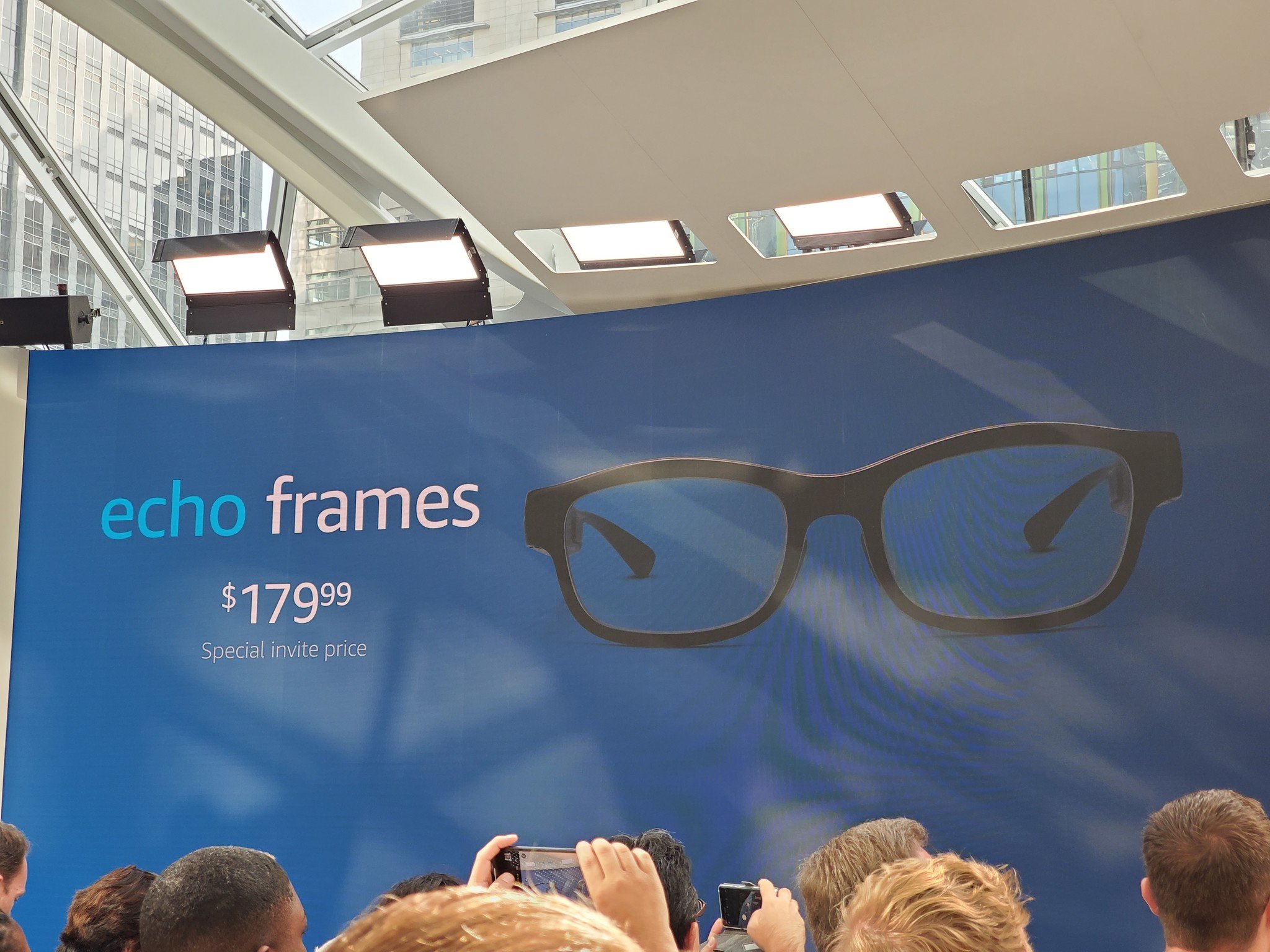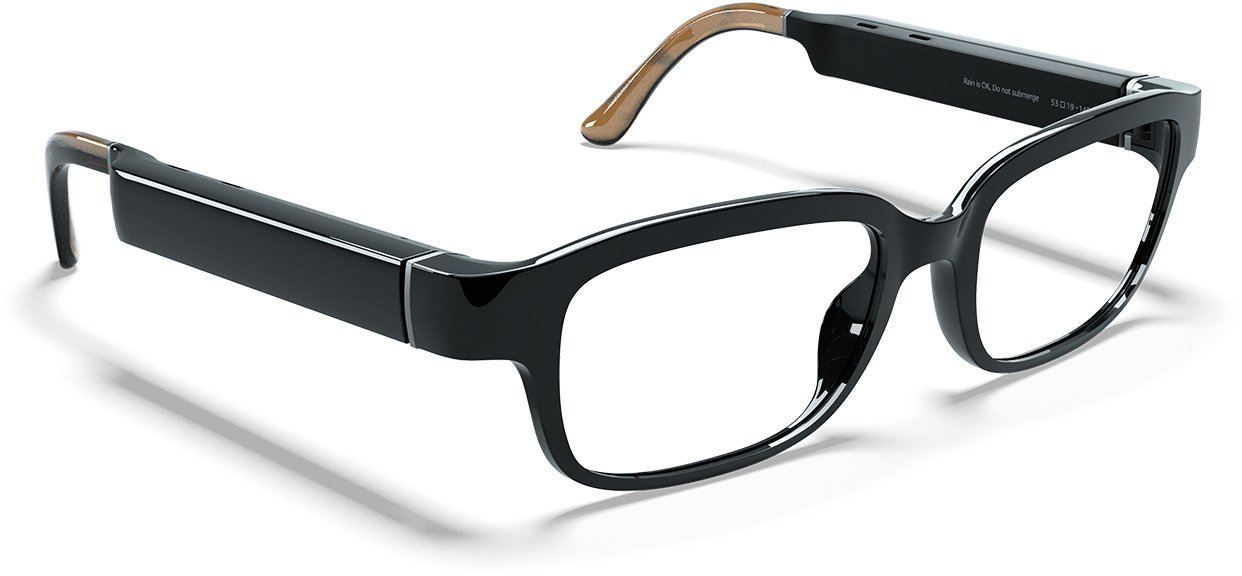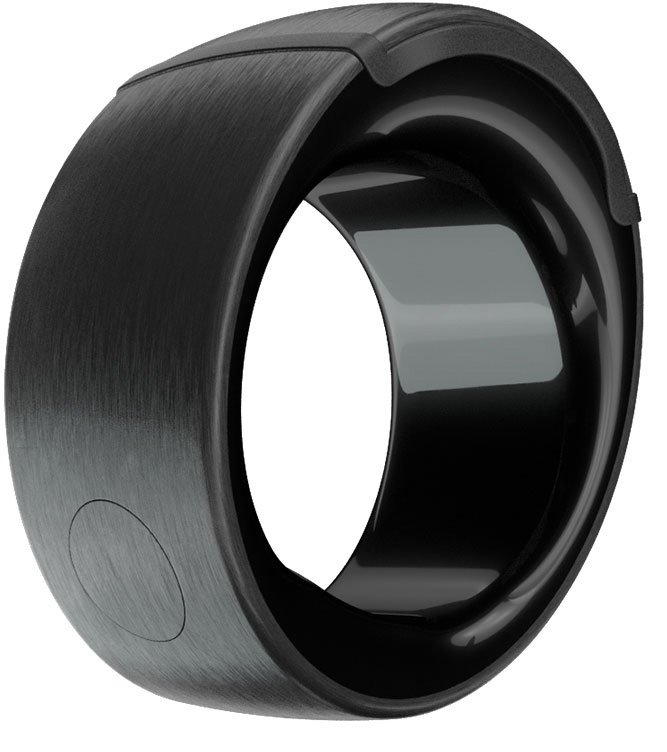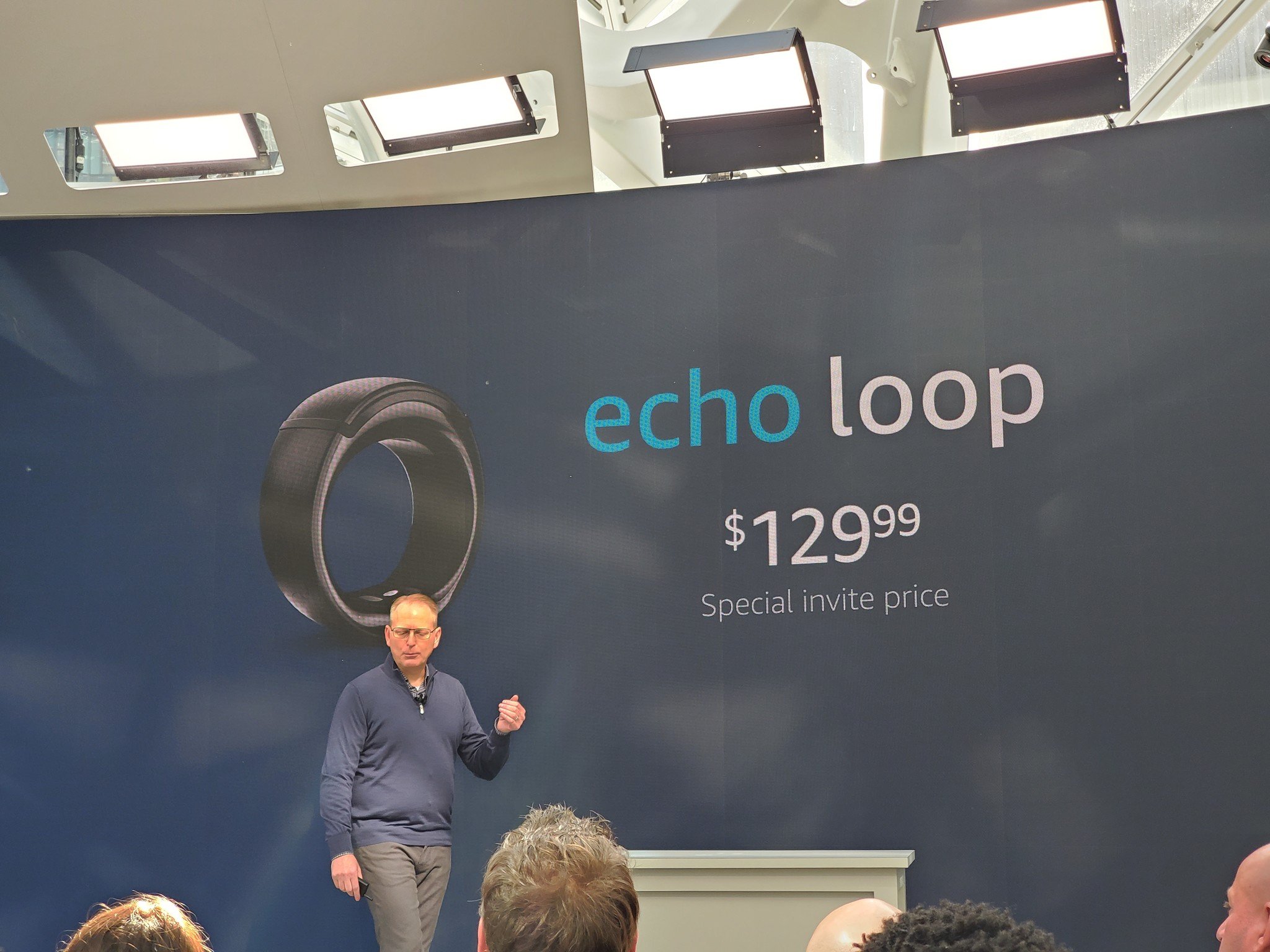Amazon's first wearables are better than you think, cheaper than we deserve
These aren't category leaders — but they're audio-focused wearables with value only a company like Amazon can provide.
With its 2019 hardware event, Amazon broke new ground: it's getting into wearables. In a big departure from just releasing various home-based vessels to serve Amazon Alexa at you, three new products aim to send the voice assistant on the go: Echo Frames, Echo Loop and Echo Buds.
And the best part about Amazon's trio of wearables isn't the amazing capabilities or groundbreaking design, but how the set shows the companies pragmatism about what's possible with current tech. And is doing so while staying very much within Amazon's usual philosophy of pushing into new market segments with prices way lower than what's available today.
Now there's a notable distinction between the Frames and Loop, which are "Day1 Experiments," and the Echo Buds, which are a full-blown consumer product. So I'll start with the Buds first, because they will have the largest impact, and also the earliest, when it comes to Amazon's category expansion.
These obviously aren't the first headphones to have Amazon Alexa support, which again is why the Buds are clearly separate from the Day1 Experiments. But again, I see Amazon's lack of doing something "groundbreaking" as a positive here — because the Buds are really good.
The Echo Buds aren't ambitious, but they're going to sell incredibly well.
The Echo Buds have good sound quality, in my admittedly short time using them, but also great fit in the ears and a relatively compact size. The size point is important because these have Bose-made active noise cancellation, which is rare in truly wireless earbuds. It works incredibly well, especially when paired with well-seated rubber ear tips and some music playing. I couldn't hear a person talking two feet from me. The Buds also have customizable touch sensors on both ears, hands-free Alexa, and 5-hour battery life with noise cancellation turned on.
Yes the case is massive and charges over Micro-USB, but that's not going to matter nearly as much as what these earbuds offer for the incredibly competive price of $130. Amazon came right out of the gate with its first Echo-branded headphones, and they already look like they'll be one of the top competitors in the sub-$200 truly wireless earbud space.
Alexa on the go
Echo Buds
Alexa, lots of battery, and noise cancelation.
The Echo Buds are Amazon's first wireless earbuds, and they look pretty great. They're promising world-class noise reduction using Bose technology, hands-free Alexa access, and 5 hours of playback with the buds and another 20 hours in the charging case.
Then, things get a little weird. Amazon Echo Frames are "smart" glasses, but not in the way that we've seen from so many other companies. The cynical take is that Amazon's far less innovative; my take is that Amazon's far more practical given the constraints of what you can actually do with smart glasses with today's technology.
These are smart glasses that basically just replicate earbuds functionality ... but that's okay.
The Echo Frames don't have a display or camera, they show all of their smart capabilities through audio — finely tuned microphones that are meant to only pick up your voice at a normal volume, and four speakers that channel audio directly to your ears (rather than using bone conduction). You can talk to Alexa, and listen to responses or ongoing audio — the speakers are tuned for spoken word like podcasts and audiobooks, not music, but they sound surprisingly good! And they get very loud, and are easily adjusted with a physical volume switch.
You can also get audio notifications from VIP contacts and specific apps, and they come through just like most "smart" headphones. But the difference here is that it's a bit more discrete than wearing something in your ear. If you see the value in having this sort of info piped into headphones, but don't like the distraction or the general issues with headphones in all day, this is an interesting alternative.
By skipping a camera and display, the Echo Frames can actually be small and discrete.
By choosing to skip any sort of display or camera, sticking only to audio, Amazon manages to make smart glasses that arent huge, heavy, bulky, or cumbersome. At a glance, you really wouldn't tell they're smart at all — and when you notice what's going on and see the thick arms they still don't look too bad. They're light (just 31 grams), and the weight is distributed evenly front-to-back and side-to-side.
And as is always the case with Amazon, the price is incredible: the Echo Frames are only $170, at least in this early invite-only period. But still ... these aren't an expensive proposition. Sure they have other restrictions in that you have to get over the hurdle of wearing glasses if you don't need to, but price isn't going to keep you from buying these.
Sneak peek frames
Amazon Echo Frames
Here's looking at you, Alexa.
This Day 1 Edition product will bring Alexa to you while out in the world in a discreet pair of microphone-embedded glasses that you'll need an invitation to buy.
The Echo Loop is last in this group because it does the least and has the furthest to go to reach mass market appeal. Still, it's incredible to see what Amazon packed into a ring — even if it's a bit bulky. There are two microphones, a speaker, battery and charging contacts, plus an attractive lack titanium and steel casing. Sure it's a bit big, but all of these smart rings are.
The Loop has the furthest to go, but shows Amazon can handle new form factors.
It works just like you'd guess: you can press a button, make voice queries, and then hear them back. The microphone is tuned to work about 6-10 inches from your mouth, and is positioned on the underside of the ring so you don't have to rotate your hand — and right next to it, there's a speaker tuned to work at the same distance. The ring understood all of my queries, surprisingly, and the speaker was just loud enough to hear in a crowded demo room. But honestly it's impressive that this thing works at all.
You could easily see a smart ring like the Echo Loop making sense, if the packaging shrunk in size just a little bit. you can ask questions, get notifications, send messages, set reminders and more — all without having to wear something as big as a smartwatch, headphones or smart glasses. Just like the Echo Frames there are obvious barriers to getting people to start wearing extra rings, but again this is a Day1 Experiment, and I'm glad Amazon is giving this category a shot alongside the Frames and Buds.
Keep Alexa on hand
Amazon Echo Loop
Take Alexa with you everywhere you go.
Have you ever wanted Alexa built into a ring you wear on your finger? That's what Echo Loop offers. You can use the ring to answer calls, get answers to quick questions, set reminders, and more. If you want to buy it, you'll need to request an invitation from Amazon.
Amazon isn't really blazing trails or pushing the industry with any particular feature or capability of any of these products. But it's doing more than enough to make a compelling argument to pay attention to its wearables developments. By keeping things realistic, not overextending, limiting compromises and critically keeping prices down, all of a sudden Amazon is poised to be a player in the wearables space. Who would've guessed.
from Android Central - Android Forums, News, Reviews, Help and Android Wallpapers https://ift.tt/2lRnH2z






Post a Comment